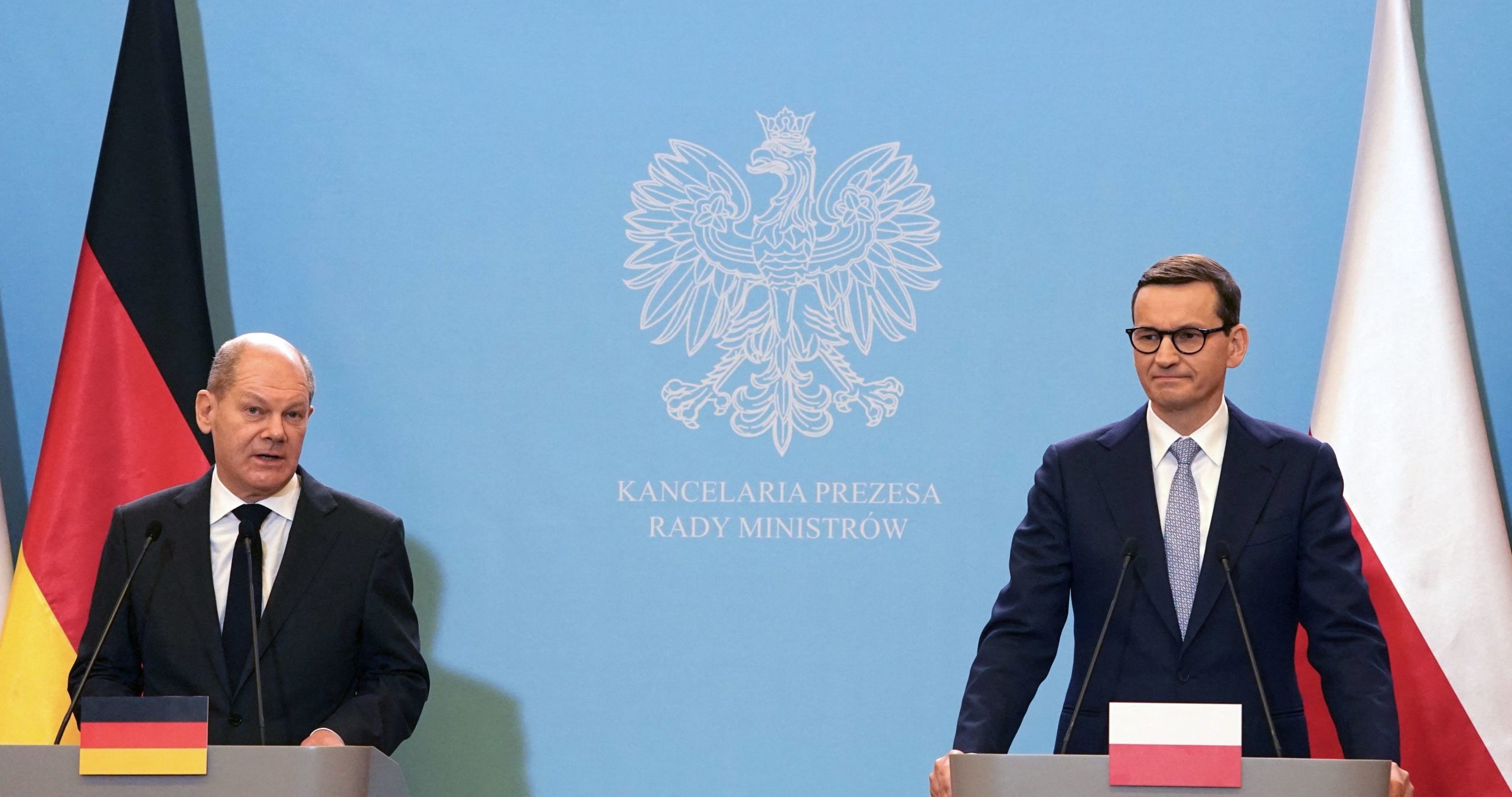Poland and Germany are EU neighbours, but their alliance is a strange one. The relationship is increasingly bitter, and on Tuesday the German government announced that it won’t consider new claims by Warsaw for over $1.3 trillion in reparations for damage inflicted by the Nazis during World War II. In response, Poland said it will take its claim to the United Nations.
Germany insists that Poland waived any reparations claims in a 1953 agreement. Warsaw representatives say that decision was made under pressure from the USSR, and that it never made a sovereign choice on the matter.
Reparations claims are all the rage in the West. From demands for compensation over historical slavery and imperialism, to claims that advanced economies must pay “climate reparations” to poor countries around the world, it’s fashionable to suggest that levelling out inequalities demands visiting the sins of distant ancestors upon those living today.
When Poland’s request was officially launched by the ruling Law and Justice party at Warsaw’s Royal Castle in September, the language bore distinct similarities to slavery reparations claims. The Polish government suggested that Poland was never able to achieve “normality” following the war, saying the effects of Nazi occupation “continue to this day.”
While the claims relate to more recent atrocities than the transatlantic slave trade, in some ways Warsaw’s calls for reparations don’t hold as much water. Unlike countries which profited from the slave trade, Germany’s wartime destruction and oppression of Poland did not bring it long-term economic advantage at Poland’s expense. The Polish economy was obliterated — but World War II wasn’t exactly profitable for Germany, either.
Poland’s arguments suffer from the same problem as other reparations claims: highlighting one long-distant link in the chain of historical cause and effect as the reason for all present problems is too simplistic. When it comes to the specific injustice of Poland’s lack of war reparations, for instance, it could be argued that historical responsibility lies not with Germany but with the USSR, for pressuring Poland to drop its claims when those who lived through the war were still alive.
But the Polish government appears motivated less by any likelihood of success than by the political expediency of stoking anti-German sentiment ahead of general elections this autumn. Warsaw was long suspicious of Berlin due to its friendly relations with the Kremlin before Russia’s invasion of Ukraine, and now that mistrust has hardened into intense dislike. The leader of Law and Justice, Jarosław Kaczyński, has even warned of a “German-Russian plan to rule over Europe”.
And with Germany the economic driving force in the European Union, anti-German sentiment is a key ingredient of eurosceptic nationalism throughout Central Europe. At recent anti-western rallies in the Czech Republic attended by tens of thousands, the level of antipathy for their western neighbour was striking — speakers portrayed the EU as a new vehicle for an old German wish to dominate Europe.
Such attitudes underline the problems still posed by a shared European political project in which Germany plays the leading role. Poland’s reparations claim on its powerful neighbour shows how fragile are the alliances holding together states which still haven’t forgotten the days when they were bitter enemies.










Join the discussion
Join like minded readers that support our journalism by becoming a paid subscriber
To join the discussion in the comments, become a paid subscriber.
Join like minded readers that support our journalism, read unlimited articles and enjoy other subscriber-only benefits.
Subscribe